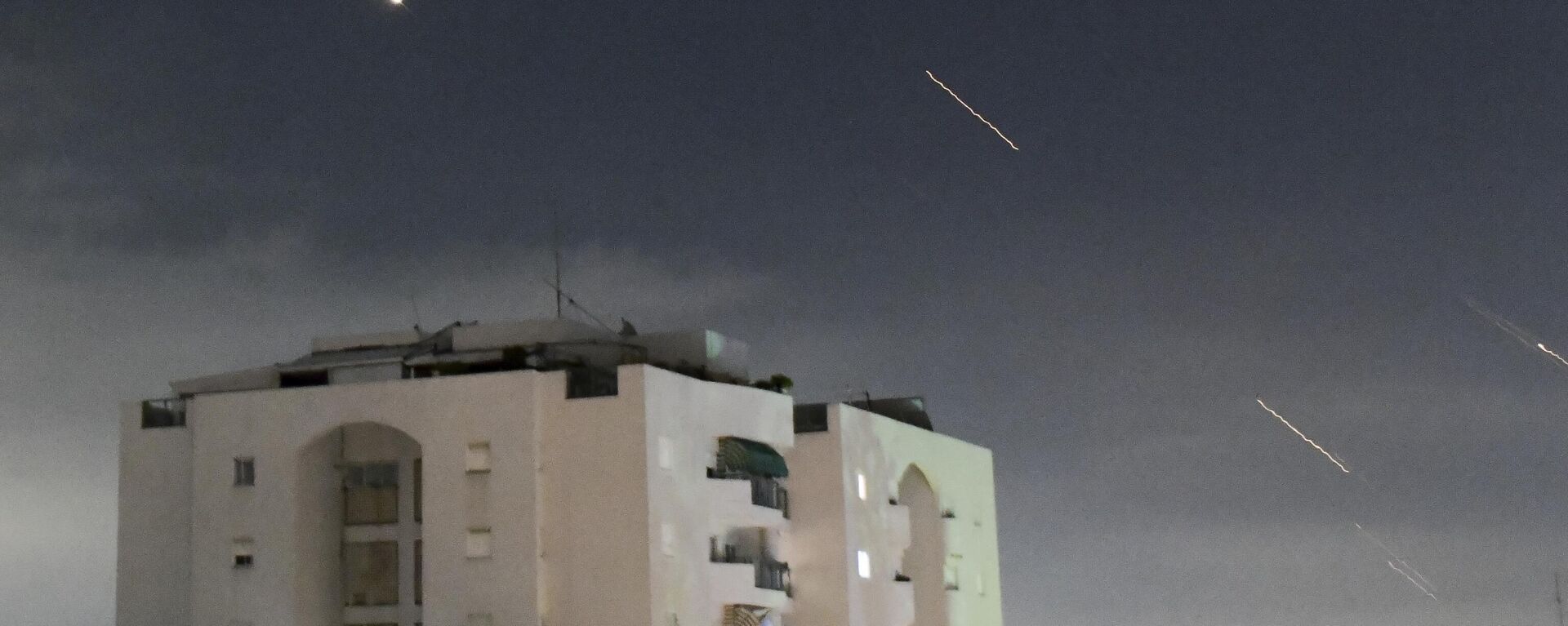https://sputniknews.in/20240918/israels-pager-attack-exposes-risks-of-relying-on-foreign-tech-8166055.html
Israel's Pager Attack Exposes Risks of Relying on Foreign Tech
Israel's Pager Attack Exposes Risks of Relying on Foreign Tech
Sputnik India
India should create its own ICT infrastructure, operating systems, hardware and software, as failing to do so will leave the country vulnerable to ongoing... 18.09.2024, Sputnik India
2024-09-18T22:22+0530
2024-09-18T22:22+0530
2024-09-19T01:35+0530
sputnik opinion
india
lebanon
israel
hezbollah
mossad
government of india
ministry of external affairs (mea)
ministry of defence (mod)
israel defense forces (idf)
https://cdn1.img.sputniknews.in/img/07e8/09/12/8168805_0:160:3072:1888_1920x0_80_0_0_e21652496310ac22ae67da55854e918b.jpg
Nine people lost their lives and over 2,800 were injured, many seriously, in Lebanon due to a coordinated explosion of pagers targeting Hezbollah members.Iran's state media has reported that its ambassador to Lebanon, Mojtaba Amani, was also injured in the attack."The attack in Lebanon is a deliberate crime and a terrorist act. Israel committed it after it failed militarily, so it was forced to resort to intimidation of the civilian population through psychological warfare, but it struck the wrong chord," Lebanese Labor Minister Mustafa Bayram told Sputnik International on Wednesday.Hezbollah released a statement shortly after the explosions indicating that "Israel is fully responsible for the pager blasts.""I preached that long time: 'he who controls the electromagnetic spectrum, will control future battlefields.' When I say electromagnetic spectrum, it's like an open ocean. The people who are controlling the lanes are the ones. It's like the Swiss canal. The seas are there. But who controls the Swiss canal, he controls the entire world," he explained.Col. Bakshi drew an example of Russia that has experienced unexpected developments with drones, emphasising how warfare has evolved from traditional methods – like using grenades and machine guns – to employing drones that can deliver payloads directly into enemy positions."Overreliance on foreign software and hardware could have serious consequences down the line, not just for India but for the whole world," he explains. "Imagine the chaos if something like Google went down for just 3-4 hours—the whole world would be in panic."A couple of years ago, Bombay experienced a power outage. Delhi was practically hijacked when someone hacked the internal hospital systems. For three days, nobody knew who the patients were or their medical histories. Should India Be Cautious About Origin of Software It's Using?The Lebanon explosions appear to have been caused by a modified proprietary design of the pagers used in the attack, Sanjiv Arora, a cyber security expert, told Sputnik India. It seems unlikely that any manufacturer would produce such pagers as standard items, given that standardisation for global compatibility is managed by organisations like IEEE or IETF, he said.Both experts stressed that nations like India have grown increasingly dependent on technology, especially with services tied to data verification and banking.
https://sputniknews.in/20240807/us-big-tech-guards-israels-operations-in-the-middle-east-7974093.html
india
lebanon
israel
the united arab emirates (uae)
arabian sea
persian gulf (arabian gulf)
saudi arabia
middle east
south asia
us
Sputnik India
feedback.hindi@sputniknews.com
+74956456601
MIA „Rossiya Segodnya“
2024
Swapna Nair
https://cdn1.img.sputniknews.in/img/07e7/09/12/4320104_0:0:681:681_100x100_80_0_0_ca8a7d4d582609272840ffdd1cde7278.jpg
Swapna Nair
https://cdn1.img.sputniknews.in/img/07e7/09/12/4320104_0:0:681:681_100x100_80_0_0_ca8a7d4d582609272840ffdd1cde7278.jpg
News
en_IN
Sputnik India
feedback.hindi@sputniknews.com
+74956456601
MIA „Rossiya Segodnya“
Sputnik India
feedback.hindi@sputniknews.com
+74956456601
MIA „Rossiya Segodnya“
Swapna Nair
https://cdn1.img.sputniknews.in/img/07e7/09/12/4320104_0:0:681:681_100x100_80_0_0_ca8a7d4d582609272840ffdd1cde7278.jpg
lebanon, explosion of pagers, us-designated terrorist group hezbollah, iran's state media, ambassador to lebanon, mojtaba amani, lebanese health minister firass abiad, hezbollah, pager explosions, pager devices, hezbollah members and officials, institutions exploded, israel, pager blasts, israel's mossad, israeli software, u.s. involvement, foreign technology for india, foreign software and hardware, whole world, col hunny bakshi, ex-indian military intelligence officer, foreign agents, american and other intelligence, national sovereignty, military intelligence, lebanon, warfare, russia, developments with drones, warfare, traditional method, grenades and machine guns, drones, enemy positions, intellectual threats, weaponized ones,technological advancements, industrial revolution, electromagnetic spectrum, future battlefields, suez canal, global power dynamics, internet's infrastructure, encrypt data and implement firewalls for security, middle ages, public transport, analogue state, panic and chaos, modern conflicts, digital realm, population vulnerable and exposed, india, mumbai, cyberattack, delhi's systems, aadhaar and banking, ict infrastructure, operating systems, hardware and software, lebanon blast, global compatibility, ieee or ietf, sanjiv arora, cyber security expert, non-standard (customized) products, american intelligence, national sovereignty, india, electronic devices and software
lebanon, explosion of pagers, us-designated terrorist group hezbollah, iran's state media, ambassador to lebanon, mojtaba amani, lebanese health minister firass abiad, hezbollah, pager explosions, pager devices, hezbollah members and officials, institutions exploded, israel, pager blasts, israel's mossad, israeli software, u.s. involvement, foreign technology for india, foreign software and hardware, whole world, col hunny bakshi, ex-indian military intelligence officer, foreign agents, american and other intelligence, national sovereignty, military intelligence, lebanon, warfare, russia, developments with drones, warfare, traditional method, grenades and machine guns, drones, enemy positions, intellectual threats, weaponized ones,technological advancements, industrial revolution, electromagnetic spectrum, future battlefields, suez canal, global power dynamics, internet's infrastructure, encrypt data and implement firewalls for security, middle ages, public transport, analogue state, panic and chaos, modern conflicts, digital realm, population vulnerable and exposed, india, mumbai, cyberattack, delhi's systems, aadhaar and banking, ict infrastructure, operating systems, hardware and software, lebanon blast, global compatibility, ieee or ietf, sanjiv arora, cyber security expert, non-standard (customized) products, american intelligence, national sovereignty, india, electronic devices and software
Nine people lost their lives and over 2,800 were injured, many seriously, in Lebanon due to a coordinated explosion of pagers targeting Hezbollah members.
Iran's state media has reported that its ambassador to Lebanon, Mojtaba Amani, was also injured in the attack.
"The attack in Lebanon is a deliberate crime and a terrorist act. Israel committed it after it failed militarily, so it was forced to resort to intimidation of the civilian population through psychological warfare, but it struck the wrong chord," Lebanese Labor Minister Mustafa Bayram told Sputnik International on Wednesday.
Hezbollah released a statement shortly after the explosions indicating that "Israel is fully responsible for the pager blasts."
The recent events in Lebanon "signify a shift to a new kind of warfare," Col Hunny Bakshi, a former military intelligence officer told Sputnik India. "The phones could listen to you now. It is a weaponised threat. It's a new warfare."
"I preached that long time: 'he who controls the electromagnetic spectrum, will control future battlefields.' When I say electromagnetic spectrum, it's like an open ocean. The people who are controlling the lanes are the ones. It's like the Swiss canal. The seas are there. But who controls the Swiss canal, he controls the entire world," he explained.
Col. Bakshi drew an example of Russia that has experienced unexpected developments with drones, emphasising how warfare has evolved from traditional methods – like using grenades and machine guns – to employing drones that can deliver payloads directly into enemy positions.
Future battles won’t be fought on the ground; they’ll be fought behind the scenes, Col Bakshi believes.
"Overreliance on foreign software and hardware could have serious consequences down the line, not just for India but for the whole world," he explains. "Imagine the chaos if something like Google went down for just 3-4 hours—the whole world would be in panic."
"If your population is so psychologically dependent on a piece of metal, and suddenly it's taken away, it would be like walking naked in the street."
A couple of years ago, Bombay experienced a power outage. Delhi was practically hijacked when someone hacked the internal hospital systems. For three days, nobody knew who the patients were or their medical histories.
"Now imagine this happening across the entire country, where everything depends on data. Everything you do requires your Aadhaar card. What if someone blocks your ability to receive OTPs? Your banks would shut down. It's going to be [chaos] at a whole new level. It's actually scary. It's very scary."
Should India Be Cautious About Origin of Software It's Using?
The Lebanon explosions appear to have been caused by a modified proprietary design of the pagers used in the attack, Sanjiv Arora, a cyber security expert, told Sputnik India. It seems unlikely that any manufacturer would produce such pagers as standard items, given that standardisation for global compatibility is managed by organisations like IEEE or IETF, he said.
Both experts stressed that nations like India have grown increasingly dependent on technology, especially with services tied to data verification and banking.
"India should be careful [with] who we buy from and what technology or features we buy. Are we buying standard or non-standard (customised) products? In cases of customisation, the probability of things going wrong due to bugs and errors will be higher," he emphasised. "[We] should adopt a comprehensive monitoring approach, and examine all anomalies rather than just focusing on potential attacks or errors."



